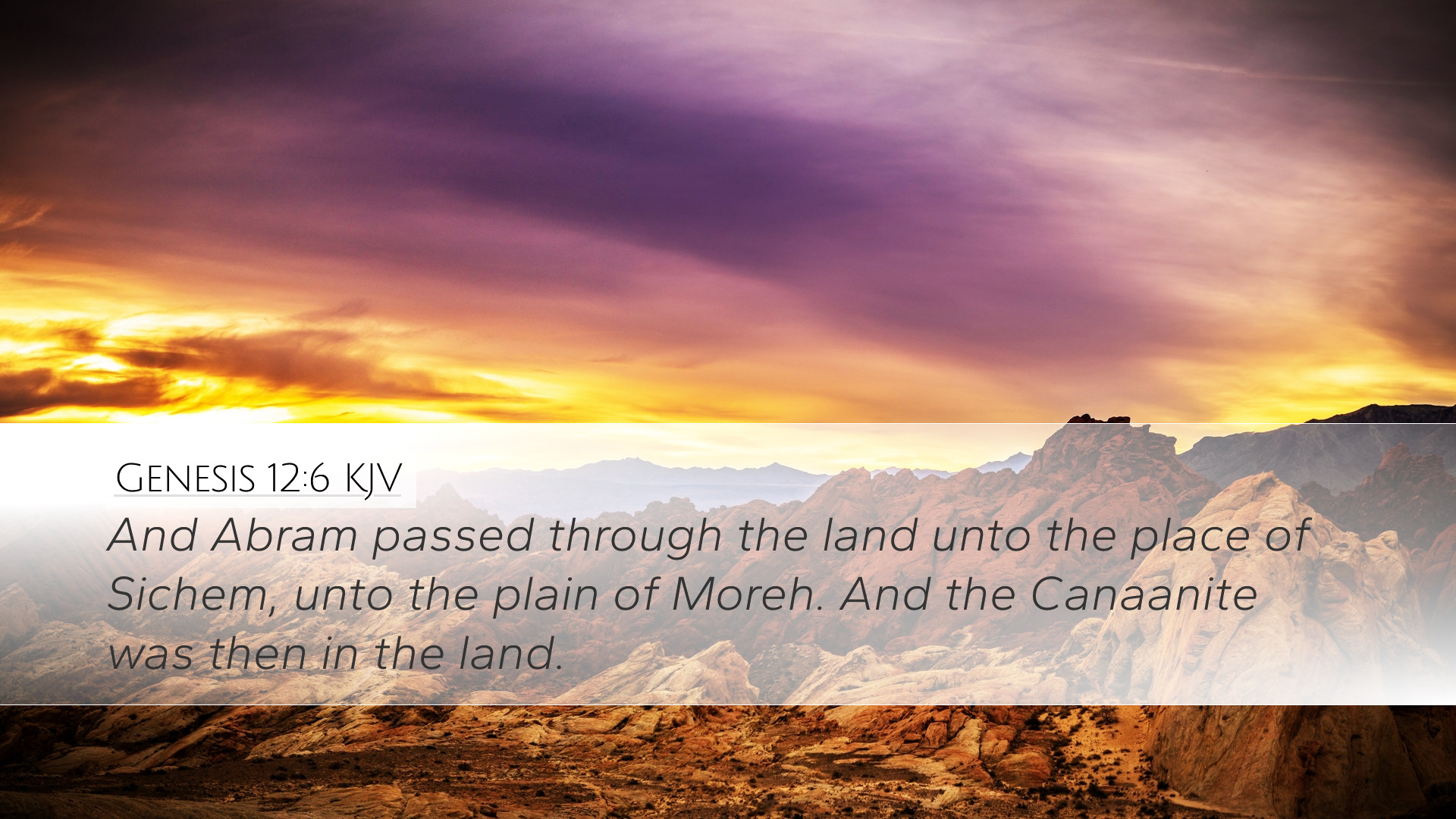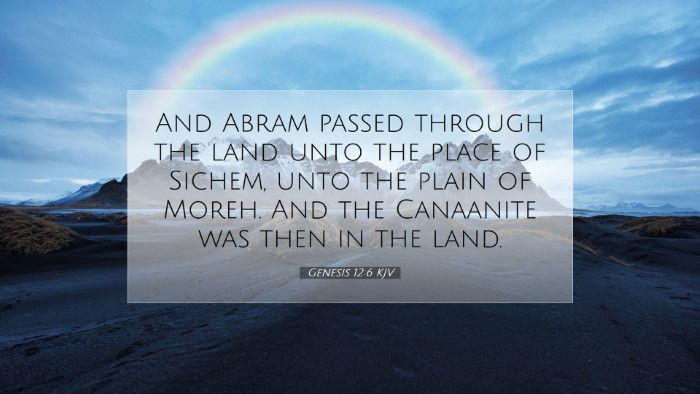Genesis 12:6 Commentary
Verse: "Abram traveled through the land as far as the site of the great tree of Moreh at Shechem. At that time the Canaanites were in the land."
Introduction
This verse marks a significant moment in the narrative of Abraham, the patriarch of the faith, as he begins his journey through Canaan, the land promised to his descendants. It serves as a crucial point in understanding God’s covenant and the divine plan for His people.
Contextual Overview
In the broader narrative of Genesis, this chapter details God's call to Abram and his obedient response in leaving his homeland. The journey itself is symbolic of faith and trust in God's promises.
Insights from Public Domain Commentaries
Matthew Henry's Commentary
Matthew Henry emphasizes the importance of Abram's journey as being both literal and metaphorical. Heading into Canaan signifies faith in God's promises without possessing visible proof. Henry notes:
- Faith in Action: Abram's movement is described as a concrete example of faith, demonstrating a willingness to venture into the unknown based solely on God's directive.
- Divine Promises: The mention of the Canaanites living in the land serves as a reminder of the challenges that await Abram and his descendants, highlighting the contrast between God’s promise and present realities.
Albert Barnes' Commentary
Albert Barnes provides a theological insight focusing on the significance of Shechem and the oak at Moreh. He states:
- Historical Significance: Shechem was a strategic city in Canaan, situated between Mount Ebal and Mount Gerizim, marking the center of ancient Israel's history and future covenant renewals.
- Symbolism of the Oak: The oak at Moreh is seen as a symbol of God's enduring promises, representing a place where God reveals His plans amidst the presence of idolatry and pagan practices of the Canaanites.
Adam Clarke's Commentary
Adam Clarke provides some additional historical insights regarding the geographical and spiritual significance of Abram's journey:
- Spiritual Landscape: Clarke highlights the spiritual undertones of this land, indicating that the Canaanites’ presence represents both challenge and opportunity for the establishment of worship in the one true God.
- Environmental Context: He notes that the mention of the Canaanites indicates the diversity of peoples and cultures Abram would encounter and the dynamics involved in settling in a land not yet his own.
Theological Implications
This verse is rich with theological implications about faith, obedience, and the unfolding of God's redemptive plan. It invites pastors, students, and theologians to reflect on several key aspects:
1. Faith and Obedience
The journey of Abram shows a model of faith where belief is acted out through obedience. This serves as a foundational principle for understanding our relationship with God.
2. God’s Covenant
This moment serves as the beginning of the covenant relationship, where God sets apart a people for Himself, establishing a narrative that extends through the rest of Scripture.
3. Presence of Adversity
The Canaanites’ presence signals the challenges inherent in pursuing God’s calling. It serves as a reminder that faith does not eliminate difficulties but empowers believers to face them.
Conclusion
Genesis 12:6 encapsulates a pivotal moment in biblical history that transcends its immediate narrative. Insight from historical and theological perspectives enhances our understanding of what it means to be a part of God's promise. Reflecting on the commitment demonstrated by Abram, we are reminded of our own call to trust fully in God’s guidance, even amidst uncertainties.


